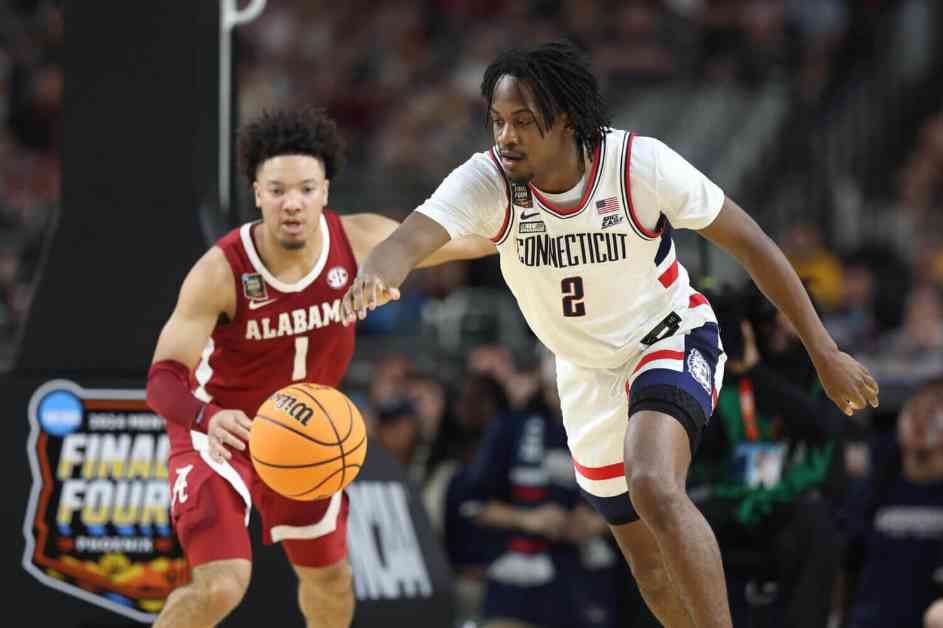Nate Oats, the coach of Alabama’s basketball team, along with other college basketball coaches, is concerned about the uncertainties surrounding the historic House v. NCAA settlement. The settlement allows schools to distribute around $20-23 million annually to their athletes starting in 2025. While football players are expected to receive the largest share, men’s basketball coaches are also curious about their allotment.
One advantage that the Big East conference may have is that it does not sponsor football. This could potentially allow Big East schools to prioritize basketball when distributing the revenue share. Coaches from the SEC and Big Ten have expressed concerns about this scenario, as they worry about being able to compete with schools that may allocate a significant portion of the revenue to basketball.
The settlement agreement allows schools to distribute up to 22 percent of the average power-conference school’s annual revenue each season from media rights, ticket sales, and sponsorships. The distribution of NCAA Tournament money will also play a significant role in determining the revenue share for different sports. Coaches are uncertain about how this will impact their programs and are concerned about the financial implications.
In addition to the financial aspects, the settlement also includes changes to scholarship restrictions and roster caps by sport. Football will see an increase in allowed scholarships, while men’s basketball and baseball will also have changes. Coaches are already thinking about how to communicate these changes to recruits and how it will affect their budgets.
Fundraising will continue to be a crucial aspect of financing college sports programs, and donors will still play a significant role. The ability to secure outside marketing deals for players will now primarily be handled by agents, shifting the dynamics of player endorsements. While the Big East coaches appreciate not having to share their NIL pool with football, they acknowledge the financial advantages of other conferences.
Despite the uncertainties and challenges posed by the settlement, coaches like UConn’s Dan Hurley remain optimistic and focused on finding solutions. Hurley emphasizes the need to adapt and figure out the best strategies to navigate the changes in college athletics. The evolving landscape of college sports will require coaches to be flexible and innovative in managing their programs amidst the shifting dynamics of revenue sharing and player compensation.




